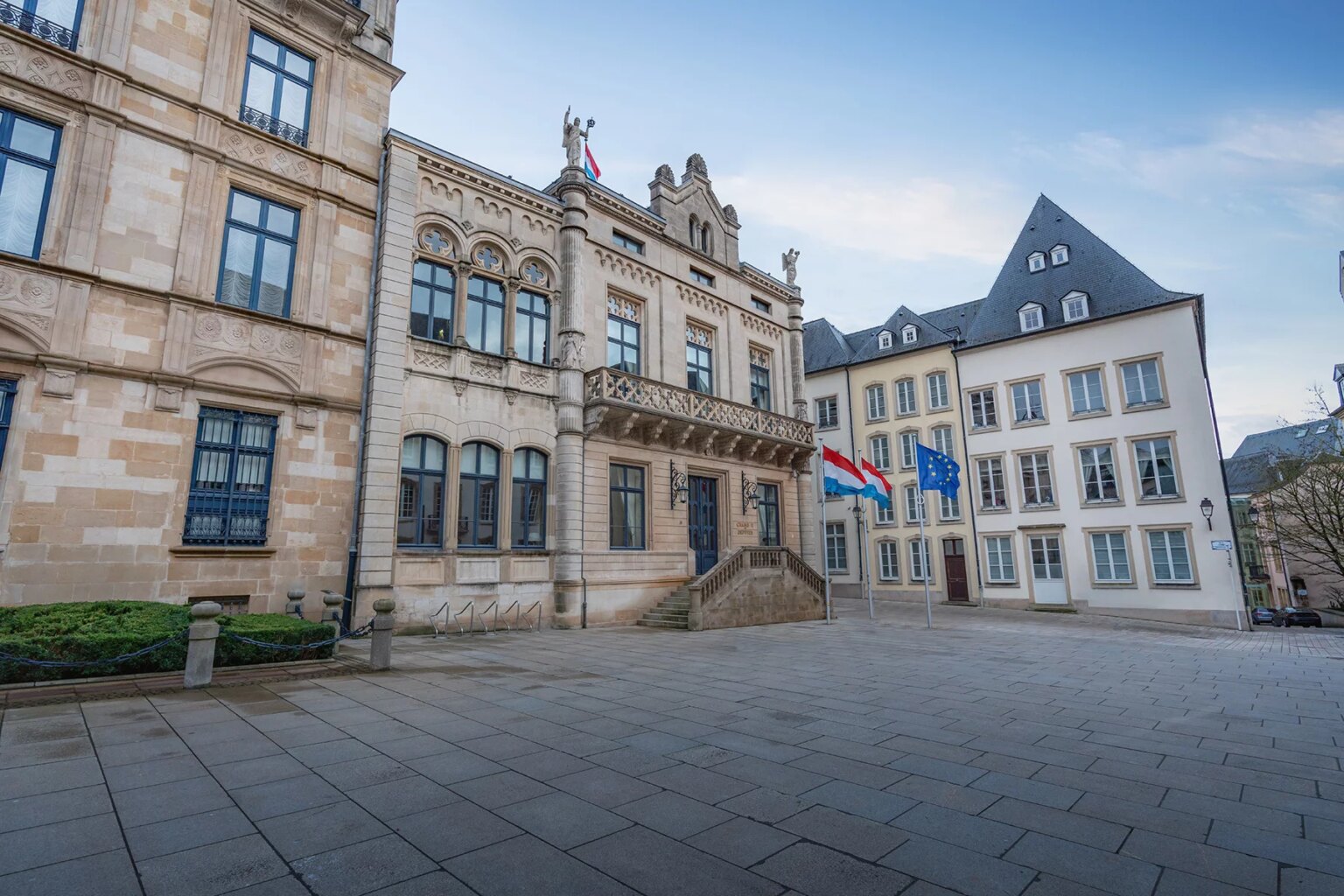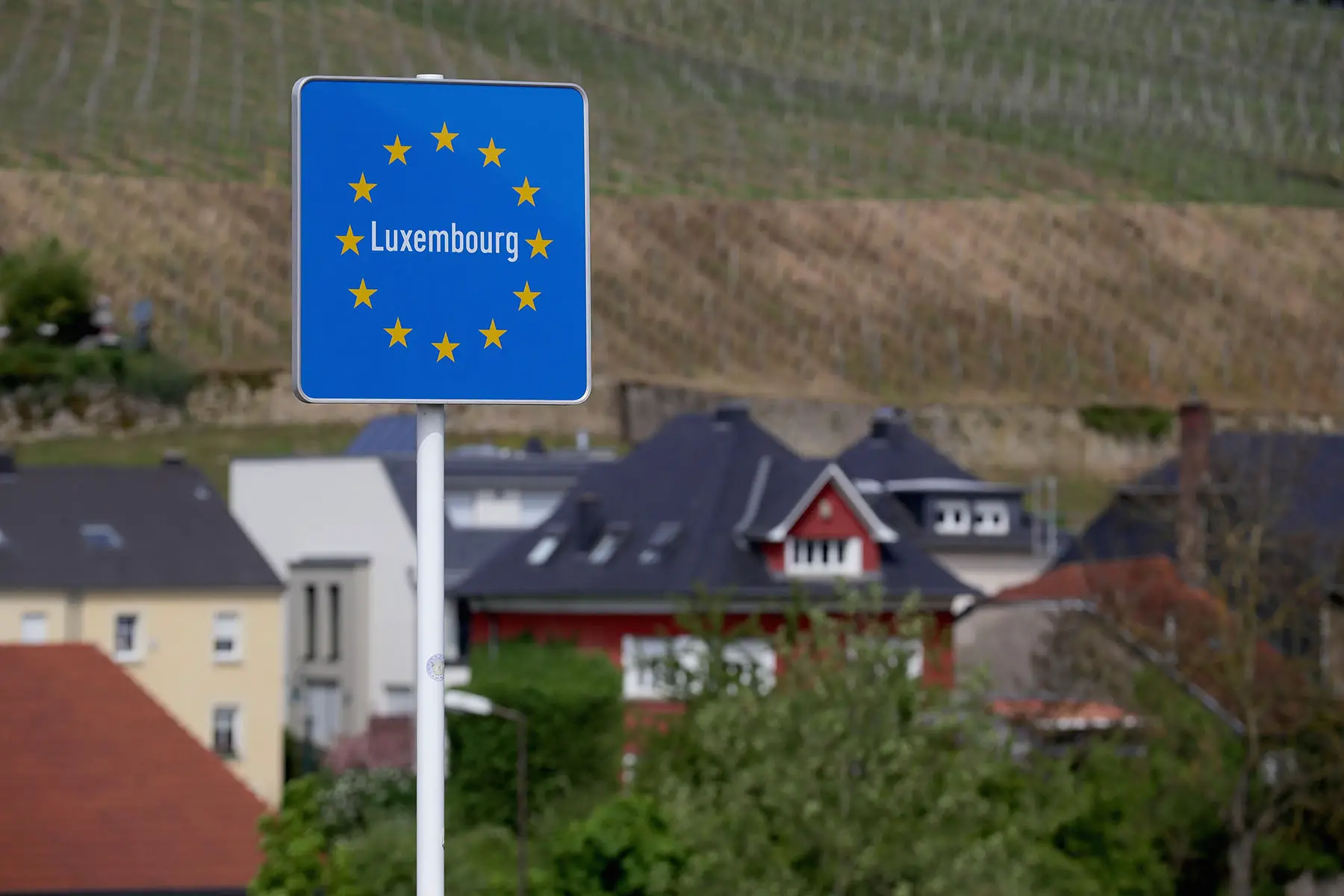Whether you’re planning a move to Luxembourg, or you’ve called the Grand Duchy home for years, it’s important to have a good understanding of local politics. After all, the government impacts day-to-day life in the country, from healthcare in Luxembourg, to how much you pay for local utilities.
To help you understand politics in Luxembourg, this guide takes a closer look at the government, electoral system, and more. This includes:
- Government and political system in Luxembourg
- The Prime Minister: who is currently in power in Luxembourg?
- Main political parties in Luxembourg
- The electoral system in Luxembourg
- Voting in Luxembourg
- Political representation in Luxembourg
- The Political History of Luxembourg
- Judiciary system in Luxembourg
- Luxembourg and the European Union/EEA
- The state of the economy in Luxembourg
- Grassroots politics and political activism in Luxembourg
- Useful resources
Ground News
Get every side of the story with Ground News, the biggest source for breaking news around the world. This news aggregator lets you compare reporting on the same stories. Use data-driven media bias ratings to uncover political leanings and get the full picture. Stay informed on stories that matter with Ground News.
Government and political system in Luxembourg
Luxembourg is a constitutional monarchy and a parliamentary democracy, similar to the UK, the Netherlands, and Spain. This means that Henri, the Grand Duke of Luxembourg (French: grand-duc de Luxembourg, German: Großherzog von Luxemburg, Luxembourgish: Groussherzog vu Lëtzebuerg) is the current head of state.
As per the country’s constitution of 1968, it is the Grand Duke who chooses the Prime Minister (French: Premier ministre, German: Premierminister, Luxembourgish: Premier Minister) to act as the head of government. However, in practice, the Grand Duke makes this choice on the basis of election results. The Prime Minister then presents their chosen members of government to the Grand Duke.
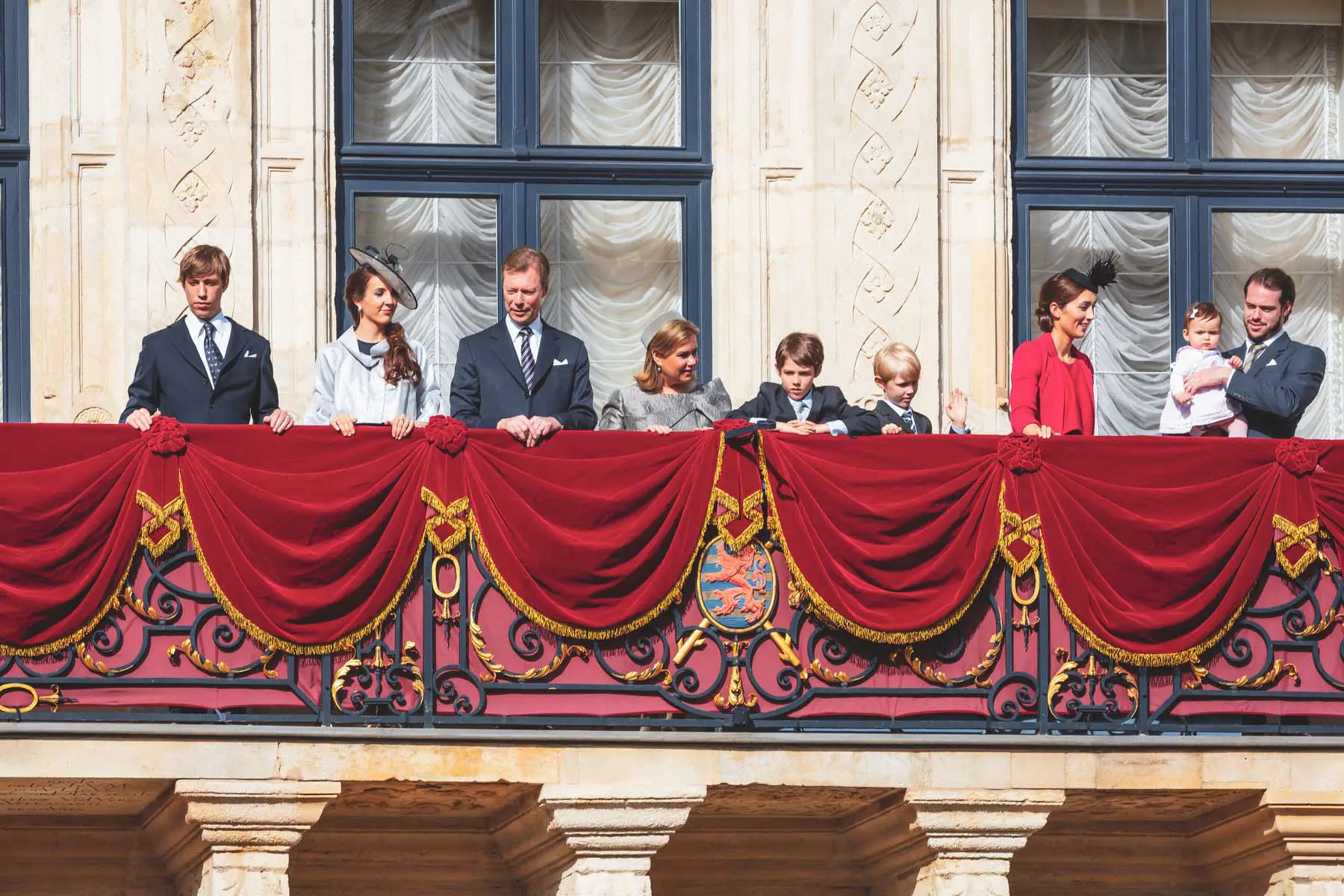
The Luxembourg government, together with the Grand Duke, has executive power. A single house, the Chamber of Deputies (French: la chambre, German: die Kammer, Luxembourgish: d’Chamber), consisting of 60 elected MPs serving five-year terms, has legislative power. In addition to this, there is the Council of State (French: Conseil d’État, German: Staatsrat, Luxembourgish: Staatsrot). This is a parliamentary advisory body with 21 appointed members.
The Luxembourg government rules according to the country’s 1868 constitution, which has been amended several times. The central government determines policy although the country splits into three districts (Diekirch, Grevenmacher, and Luxembourg), 12 cantons, and 105 communes/municipalities for administrative purposes.
Luxembourg ranks 11th on the 2023 EIU Democracy Index.
The Prime Minister: who is currently in power in Luxembourg?
The current Prime Minister of Luxembourg is Luc Frieden of the Christian Social People’s Party (CSV). Frieden has been in power since November 2023. The current two-party coalition also involves the liberal Democratic Party (DP), which was part of the previous government.

Ruling coalitions are very common in Luxembourgish politics. Indeed, Luxembourg’s electoral system has only produced one outright majority winner in the past 100 years. This was the Party of the Right, a predecessor of the CSV, who won the 1922 election. Since then, the country has had a succession of coalition administrations. The next Luxembourg elections are due to take place in 2023.
Main political parties in Luxembourg
For a small country, Luxembourg has a surprisingly high number of active political parties and a diverse political landscape. As of October 2023, these are the main political parties active in Luxembourg.
Christian Social People’s Party (CSV)
The CSV (French: Parti populaire chrétien-social, German: Christlich-Soziale Volkspartei, Luxembourgish: Chrëschtlech Sozial Vollekspartei) has been the dominant party in Luxembourg politics since its formation in 1944, when it replaced the now-defunct Party of the Right. Indeed, it has been the largest party at every election since then.
The CSV is a Christian democratic party, similar to the CDU in Germany. It supports conservative social values and a social market economy. The party is also strongly pro-Europe. Current Prime Minister Luc Frieden is the party leader.

Democratic Party
The Demokratesch Partei (French: Parti Démocratique, German: Demokratische Partei) was founded in 1955 and has often been a minor partner in coalitions with the CSV.
Democratic Party ideology centers around liberalism, supporting free-market economics, private property rights, civil liberties, and Europeanism. It has also campaigned for LGBT rights and migrant rights.
Support for the party is typically strongest around Luxembourg City. Former Prime Minister Xavier Bettel is the current party leader.
Luxembourg Socialist Workers’ Party (LSAP)
The LSAP (French: Parti ouvrier socialiste luxembourgeois, German: Luxemburger Sozialistische Arbeiterpartei, Luxembourgish: Lëtzebuerger Sozialistesch Aarbechterpartei) is the second-largest party in Luxembourg. The main party on the left, LSAP supports social democratic policies such as a strong welfare state, social justice, and European integration. Support for the party is strongest among the working class in the south of the country.
The LSAP originally formed as the Social Democratic Party in 1902 but then split into various factions before reforming as the LSAP in 1945. Paulette Lenert is the party leader.
The Greens
The Greens (French: Les Verts, German: Die Grünen, Luxembourgish: Déi Gréng) was founded in 1983, uniting environmental campaigners, peace protesters, and disaffected socialists. Its ideology is along green political lines. The party also supports social democratic welfare policies. Current priorities include ecological tax reform, improved migrants’ rights, and gender equality. Veteran politician Sam Tanson is the party leader.
Alternative Democratic Reform Party (ADR)
The ADR (French: Parti de réforme alternatif et démocratique, German: Alternative Demokratische Reformpartei, Luxembourgish: Alternativ Demokratesch Reformpartei) is a right-wing (national conservative) party in Luxembourg. The party was originally founded on a pension reform platform before developing policies on other key issues. It supports economic liberalism; however, unlike many liberal parties, it is Eurosceptic.
ADR policies and priorities include moving to a Swiss-style direct democracy, preservation and promotion of the Luxembourgish language, and support for civil rights and freedoms. It also opposes the concept of multiple citizenships. Support for the party is strongest in rural areas.
Fred Keup is the current party leader.
The Left
Founded in 1999 by democratic socialists and communists, The Left (French: La Gauche, German: Die Linke, Luxembourgish: Déi Lénk) has had moderate successes in Luxembourg parliamentary elections. The party runs on a democratic socialist platform, supporting a state-run economy, workers’ rights, and social justice policies. It follows the collective leadership model.
Pirate Party Luxembourg
The Pirate Party (French: Parti pirate du Luxembourg, German: Piratenpartei Luxemburg, Luxembourgish: Piratepartei Lëtzebuerg) is a relatively new party in Luxembourg, founded in 2009. Influenced by the Swedish party of the same name, the party adheres to the new pirate political doctrine. This is a form of grassroots democracy and civil libertarianism championing citizens’ rights, free speech, government transparency, and data privacy. The party’s co-founder, Sven Clement, is the current party president.
The electoral system in Luxembourg
Citizens of Luxembourg vote in three types of elections: national, municipal, and European. Occasionally, there is also a referendum on a single issue.
National parliamentary elections take place every five years, where the public elects 60 members to the Chamber of Deputies. Luxembourg is split into four multi-seat constituencies:
- South (French: sud, German: süden, Luxembourgish: Süden) – 23 seats
- Center (French: centre, German: mitte, Luxembourgish: Zentrum) – 21 seats
- North (French: nord, German: norden, Luxembourgish: Norden) – 9 seats
- East (French: est, German: osten, Luxembourgish: Osten) – 7 seats
Voting is according to party-list proportional representation (PR), using the Hagenbach Bischoff system. Each voter has as many votes as there are seats in their constituency, and they can spread votes across parties or concentrate them behind a single party.
In municipal elections, voters directly elect local councilors for six-year terms. This is done using party-list PR apart from in municipalities with fewer than 3,000 residents, where a relative majority system is used.
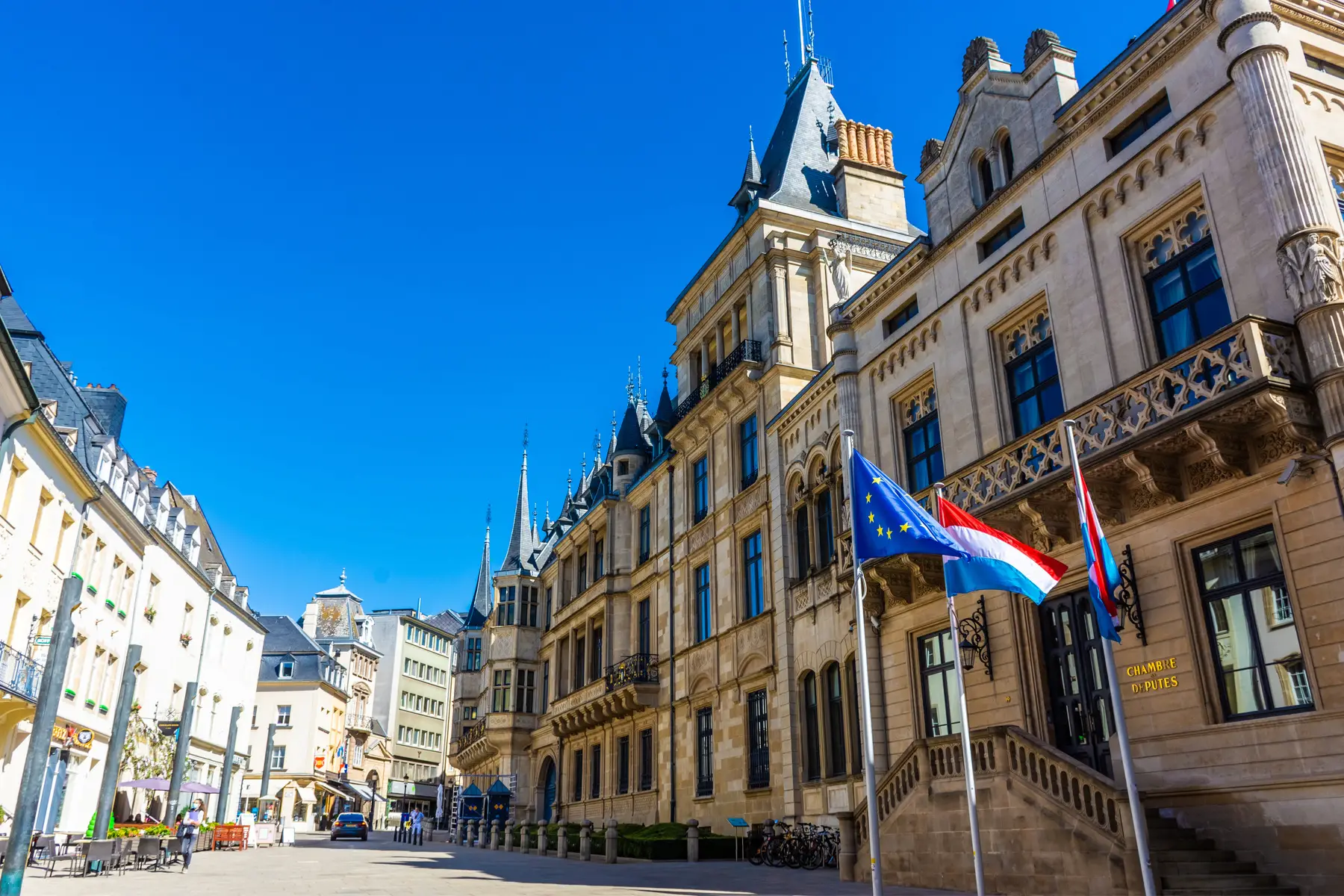
Luxembourg elections rarely return absolute majorities. In fact, the last time this happened was 1922. This means that the largest party needs to form a coalition with other parties to take them over the 31-seat majority threshold. If they can’t do this, the second-largest party can form a coalition, as has happened at the last two elections.
The Grand Duke will then appoint a Prime Minister who will form a government of ministers. There are currently 17 members of the Luxembourg government, including the Prime Minister. These also include ministers for health and consumer protection, finance, and housing.
Voting in Luxembourg
Only Luxembourg citizens aged 18 and above can vote in parliamentary elections, including citizens living abroad. All residents of Luxembourg, including foreign nationals, can vote in local elections. However, citizens living abroad cannot. All EU citizens can vote in European elections.
Voting is compulsory for anyone who is on the electoral register, hence voter participation in Luxembourg is high. Failure to vote can result in fines of €100–1,000. However, those aged over 75 or living in a municipality other than where they are registered are excluded from compulsory voting.
You cannot vote by proxy in Luxembourg. However, you can vote by post if you apply before a certain deadline. Citizens convicted of a criminal offense are disqualified from voting in Luxembourg elections.
You can register to vote in Luxembourg online or through your local municipal commune. You will be sent a polling card prior to Election Day containing instructions on how to vote. On the day, you will need to visit your local polling station and bring a valid ID, such as a passport.
You can find out more information on voting in Luxembourg on the government website.
Political representation in Luxembourg
All citizens eligible to vote and living in Luxembourg can stand for election. However, certain public employees cannot run, including judges, civil servants, and active members of the military. Foreign residents, who can stand in local elections, need to have been living in Luxembourg for 5 years.
Around 33% of Luxembourg’s MPs are female. This is exactly the same as the EU average, according to the 2023 World Bank figures.
The Political History of Luxembourg
Following the dissolution of the German Confederation, Luxembourg gained full independence in 1867 and enacted its constitution a year later. It is one of Europe’s smallest independent states, with a population of around 633,000. Furthermore, besides German occupation during the two world wars, Luxembourg has remained a sovereign state since independence.
Luxembourg is one of the world’s richest countries, making it also one of the most politically and economically stable nations. Throughout its political history, it has been mostly dominated by the conservative CSV (and its predecessor, the Party of the Right), which has headed the Luxembourg government for all but 12 years since 1918. Luxembourg has been in a cooperative political and economic union with Belgium and the Netherlands (Benelux) since 1944 and was one of the founding members of the European Union.
Judiciary system in Luxembourg
Luxembourg’s judiciary is independent from its other two branches of state, which are the executive and legislative. It follows a civil law system with trials conducted by judges.
There is a two-tier court system consisting of judicial and administrative courts. Judicial courts deal with most civil and criminal cases and are separated into three levels of court:
- Magistrates’ courts (French: juges de paix, German: Friedensrichter, Luxembourgish: Friddensgeriichter), which are lower-level courts in the three districts dealing with more minor cases.
- District courts (French: Tribunaux de district, German: Bezirksgerichte, Luxembourgish: Bezierksgeriichter), which operate in the two judicial districts of Luxembourg City and Diekirch. These deal with most civil, criminal, and commercial matters.
- Supreme Court of Justice (French: Cour suprême, German: Oberster Gerichtshof, Luxembourgish: Ieweschte Geriichtshaff), which is the highest level of judicial court, consisting of:
- the Court of Cassation (French: Cour de cassation, German: , Luxembourgish: Cassatiounsgeriicht)
- the Court of Appeal (French: , German: Kassationsgericht, Luxembourgish: Appellsgeriicht)
- the Public Prosecutor’s Office (French: Parquet général, German: Generalstaatsanwaltschaft)
Administrative courts consist of the Administrative Tribunal (French: Tribunal administratif, German: Verwaltungsgericht, Luxembourgish: Verwaltungsgeriicht) and the Administrative Court (French: Tribunal administratif, German: Verwaltungsgerichtshof, Luxembourgish: Verwaltungsgeriichtshaff). There is also a Constitutional Court (French: Cour constitutionnelle, German: Verfassungsgericht, Luxembourgish: Verfassungsgeriicht) that has nine members.
Luxembourg and the European Union/EEA
Luxembourg is a founding member of the EU, joining in 1958. The country is also part of the Eurozone and the Schengen Area, named after the small Luxembourgish city of Schengen. However, Luxembourg City has actually been home to a number of European institutions since 1952. Today, the city hosts many key institutions. This includes the European Commission, the Court of Justice, and the European Investment Bank.

In terms of representation within the EU, Luxembourg has six MEPs elected through party-list PR to represent the whole country. There are also national representatives on the Council of the EU and the various committees, plus permanent representation in Brussels. Jean-Claude Juncker, the former Prime Minister of Luxembourg, served as President of the European Commission from 2014 to 2019.
Because Luxembourg has played such an integral role in the creation and development of the EU, it has not experienced the same levels of Euroscepticism as some other parts of Europe. The ADR is the most Eurosceptic political party and has never won a seat in the European Parliament. However, it did receive 10% of the vote in the 2019 European elections.
The state of the economy in Luxembourg
Luxembourg has an advanced and sophisticated economy. It has the highest GDP per capita in the world, although its general GDP ranking is much lower on account of the small size of the country. The financial sector accounts for over 25% of GDP, with banking and insurance services particularly strong. However, other important industries include hospitality, telecommunications, and public administration.
Unemployment is at 6.7% (as of September 2024), up from a rate of 5.7% in June 2021.
Although Luxembourg has a developed economy and low poverty levels, the country’s Gini Coefficient is 32.7 (2021), which is fairly high for an advanced nation.
Grassroots politics and political activism in Luxembourg
Although not exactly a hotbed of revolutionary activity, Luxembourg does have a fairly thriving culture of grassroots action. Indeed, with a total population of around 633,000 – less than one-tenth the size of London or New York – its citizens arguably feel more connected to the political process. The Greens (part of the coalition government) and the Pirate Party (with two parliamentary seats) are both built on values of direct democracy. Volt, a European-wide movement focused on citizen participation, has also been making headway in Luxembourg.
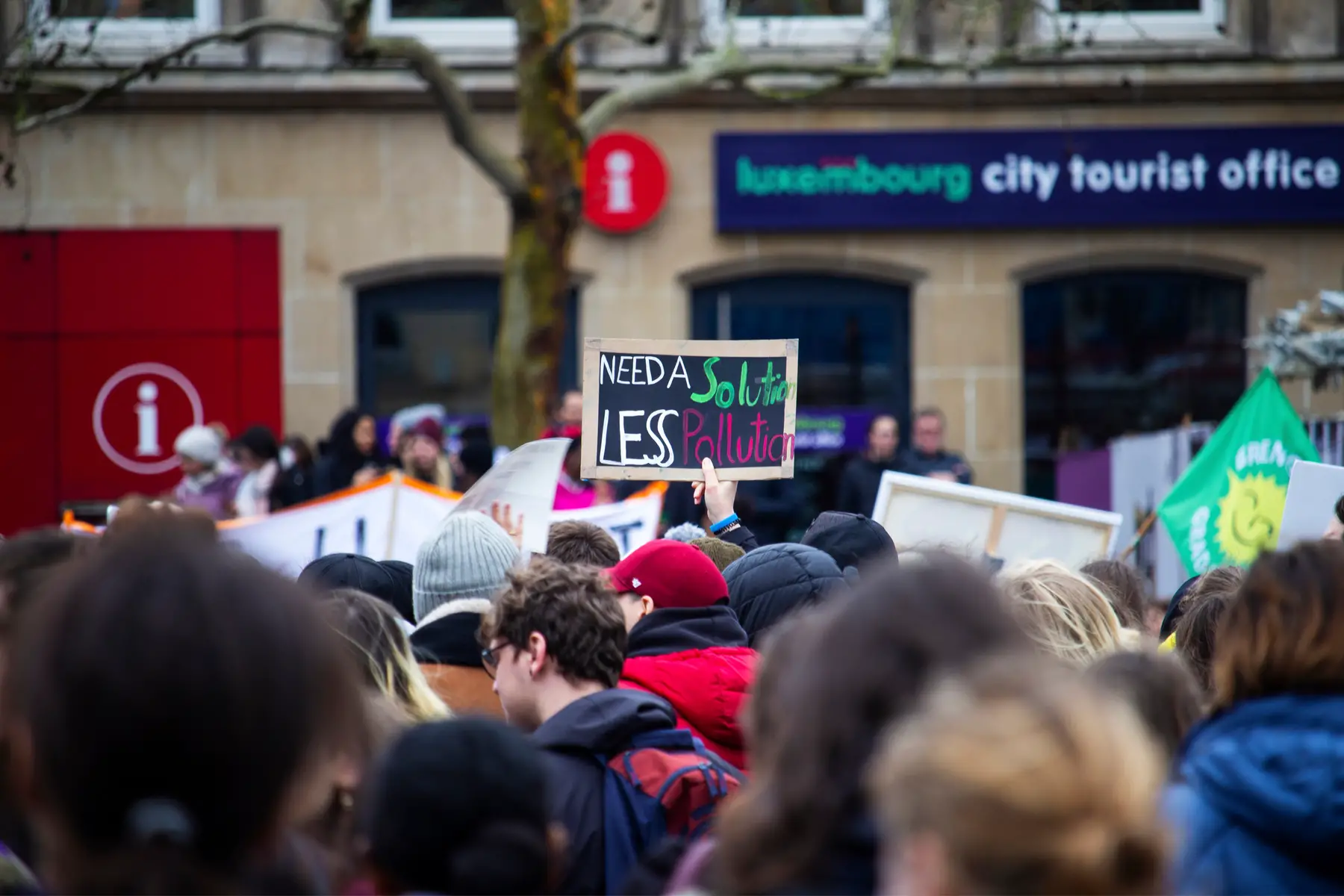
Recent examples of residents taking action in Luxembourg include housing protests in Esch-sur-Alzette in 2020, which some thought may lead to the first European rent strike. Global environmental movement Extinction Rebellion is also active in the country, carrying out climate protests in 2020 and 2021.
Luxembourg has been a leader in Europe when it comes to Citizens’ Initiatives. This is where residents come together to push for legislative change on particular issues. One such national initiative on access to equal cost healthcare received 4,500 signatures and has led to a government review of the policy. However, there have yet to be amendments.
How to get involved
Other ways to get involved in politics or political/social causes in Luxembourg include:
- Joining a local group campaigning for social change. You can search for groups in your area, or even start your own, on Meetup.
- If you are an EU citizen or a foreign resident living in Luxembourg for five years, you can get involved in local politics. This could be attending communal meetings or even standing as a local councillor.
- Volunteering for a charity or NGO in Luxembourg. You can find information on volunteering opportunities on the Luxembourg Times.
- Joining a trade union if you work in Luxembourg. Around a third of the national workforce belongs to a union and there are two large confederations.
You can also check the citizenship section on the Luxembourg government website for information on how to get involved in politics at the local, national, and European levels.
Useful resources
- Government of the Grand Duchy of Luxembourg – government website with information on the Luxembourg government and ministries
- Guichet.lu – government information portal with a homepage for citizens
- Elections.public.lu – official government elections website
